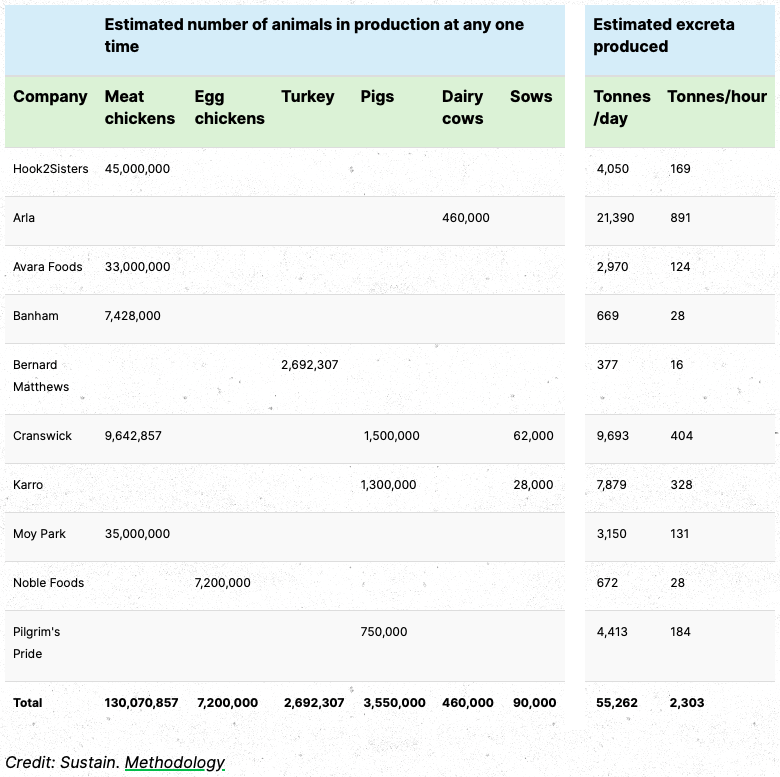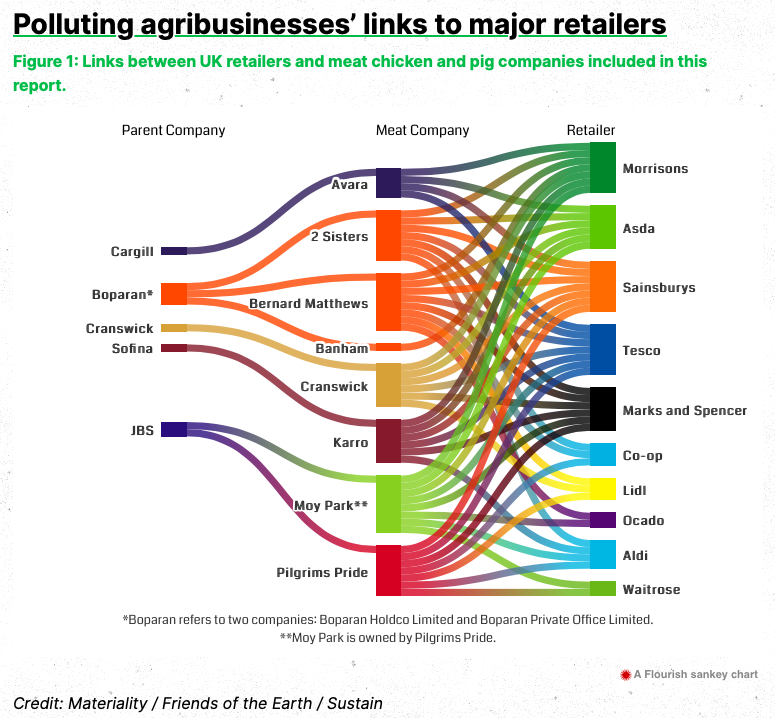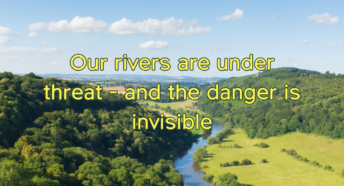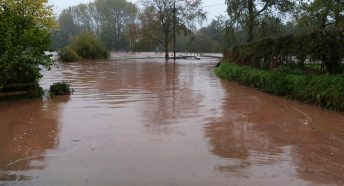Excrement Excess: Just 10 agribusinesses outpace the 10 largest UK Cities
Did you know that just ten large agribusinesses are producing more waste than the ten largest cities in the UK combined?
A recent analysis by Friends of the Earth and Sustain reveals that industrial-scale factory farm agribusinesses are responsible for a staggering amount of pollution.
With over 144 million animals in production at any given time, these agribusinesses churn out around 55,262 tonnes of animal excrement daily. That’s equivalent to over 120 double-decker buses of waste every hour. Nearly double the output of the UK’s largest cities. Unfortunately, this waste mostly goes untreated and ends up washing into nearby rivers when spread on fields. These operations are concentrated in areas like the Wye, Trent, Severn, Lough Neagh and the Broadland Rivers, exacerbating pollution and hindering efforts to restore these waterways. They supply major UK retailers and none of these companies have policies in place to prevent their waste from contaminating waterways.
The lack of regulation poses a significant threat to the recovery of UK waterways and climate targets. It’s clear that greater scrutiny and action are needed to hold polluters accountable and protect our environment.

Intensive livestock production is on the rise, with a 20% increase in intensive livestock units since 2016. This trend concentrates resources, wealth and power in the hands of a few global corporations. In fact, the ten companies highlighted in the analysis are owned by just five parent companies. Much greater scrutiny of polluting agribusinesses is needed to meet targets for nature recovery, air and water pollution and climate change.

To address this crisis, the report offers several recommendations:
- Governments should halt the development or expansion of intensive livestock units in polluted river catchments until operators can prove they won’t harm freshwater systems.
- Regulators should also have the power to penalize polluters and restore funding to environmental bodies.
- Sustainable farming systems should be supported to enhance rural communities and reduce pollution.
- Planning and permitting systems should be reformed to consider pollution and climate change impacts, with intensive livestock units required to obtain permits.
- Business, Human Rights, and Environment Act should be introduced to hold UK companies accountable for environmental harm in their supply chains.
- Local authorities and businesses are also urged to take action, from adopting policies to prevent the spread of intensive livestock units to supporting sustainable food producers and setting measurable targets to prevent pollution.
- Retailers should require full records of the end-destination of all waste produced on farms, and prevent the spreading of waste in catchments in which rivers are in unfavourable condition. Retailers are holding back customers from adopting better diets. They must adopt the measures in the Eating Better Alliance Roadmap towards ‘less and better’ meat and dairy. Policies to do so could include fairer pricing, marketing and product reformulation.
- Measures should be taken to make sustainable and healthy food more accessible and affordable, including reducing meat and dairy consumption.
We believe by implementing these recommendations, we can work towards a cleaner, healthier environment for all.
To read the full report click here.
Join us in our fight to protect our countryside, more info here.









